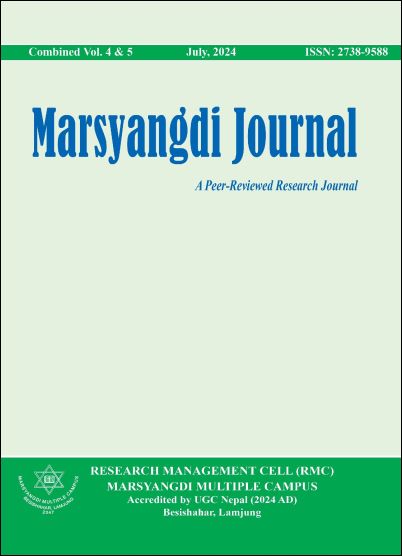An Empirical Study on Taxation and Revenue Generation in Nepal
DOI:
https://doi.org/10.3126/mj.v4i1.67813Keywords:
GDP, tax avoidance, tax compliance, tax evasion, revenue generationAbstract
This study investigates the impact of taxation on revenue generation in Nepal. It further aims to elucidate the theoretical underpinnings of taxation, including its objectives, classification, and key components within the Nepalese context. Employing both primary and secondary data sources, the research analyzes and evaluates the relationship between taxation and revenue generation. The secondary data were taken from the Economic Survey Report of the Government of Nepal and 200 eligible primary responses taken from tax administrators and tax payers respectively. The findings demonstrate a significant influence of taxation on Nepal's Gross Domestic Product (GDP) and total revenue. Additionally, the study sheds light on the negative impact of tax evasion and avoidance on revenue generation. To address these issues, the research recommends the implementation of stricter penalties for tax evasion and avoidance, along with the establishment of a comprehensive taxpayer database across federal, state, and local government levels. This database would facilitate the identification of all potential taxable income sources, thereby enhancing tax compliance.




